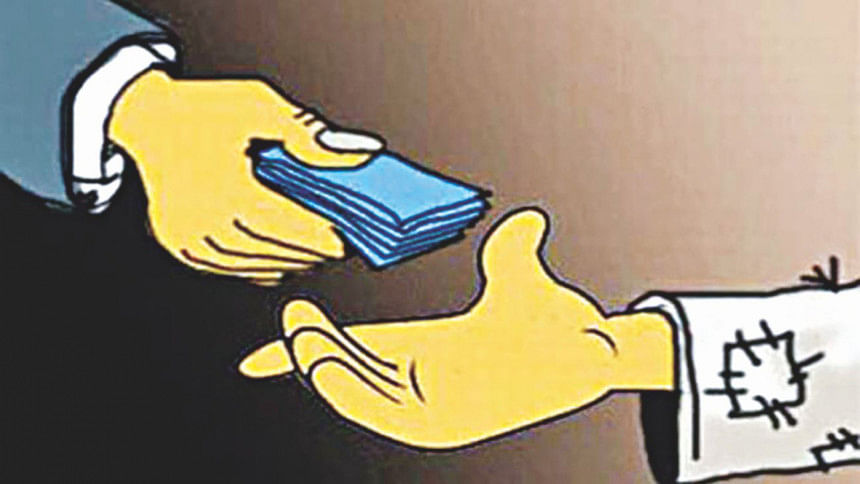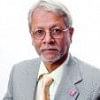Why will 'they' pay to serve us?

The young man delivered the hot biriyani at our door. I thanked him and paid him his company's due, and a little something extra for his service.
The Uber guy collected me from my pickup point. He drove near perfect. We arrived at our destination. I paid him for his service, thanked him and got down from his car.
The mechanic worked from midmorning till dusk under my vehicle to fix the exhaust pipe. His hands and clothes were smeared with grease and dust. His bright teeth shone on his soiled face to thank me, as I handed him the money for spare parts and his service.
We pay service providers for their service. Our clients pay us for our service. Clients of our clients pay them for their service. Those who serve in a profession get paid for the work they do.
Salespeople and vendors, architects and engineers, doctors and hospital assistants, rickshaw-pullers and van drivers, masons and carpenters, event managers and wedding chefs, cooks and house-helps, cleaners and gardeners, media workers and newscasters, actors and singers, magicians and emcees, light and sound technicians, boatman and bus conductors, they and all others who provide goods or services get paid.
Political office is a service. So politicians should be paid for serving the country and the people. And, they are indeed paid. Those who are elected to carry out responsibilities are in the payroll of the government, even if in opposition.
Not all politicians can or will vie for constitutional or governmental positions. There are simply not enough posts in any country. There never can be. But, there are thousands who serve politics at party level at different administrative tiers from mahalla to national. They should also not work for free. No service is free. If workers are not paid by the party, corruption will creep in and build mountains of immorality. Some of you will argue that the hills of ills have for long been a feature of our political landscape.
The above elaboration was necessary to drive home the peculiarity in politics. In it, some of those who have volunteered to serve the people are ready to pay the public they chose to serve. That is the reality. Of course, the candidates or their immediate workers do not go from door to door dishing out cash. There are lackeys to do the job.
According to a news report in The Daily Star, a few days before the 11th National Parliamentary Elections, Rapid Action Battalion (RAB) detained three people in the capital's Motijheel and Gulshan for allegedly distributing money. How much money? A staggering Tk 8 crore in cash and several cheques of around Tk 10 crore were retrieved from their possession, explained RAB Director-General Benazir Ahmed at a press conference. The RAB DG also claimed the three had already distributed about Tk 150 crore in various constituencies "to instigate violence and influence the December 30 parliamentary polls." By influencing, they must mean paying voters more than the apportioned Tk 10.
In the backdrop of one such seizure, the expenditure limit set by the Election Commission (announced November 9) is peanuts. "The commission has capped maximum expenditure by a candidate at Tk 25 lakh each, which is unchanged from the last polls." The EC has also fixed the maximum cost per voter at Tk 10 for candidates running in the forthcoming general election. Even if there are, say six lakh voters in a constituency, although by per-voter count a candidate could dish out Tk 60 lakh, he is undone by the quarter-crore capping. You will have guessed right. Candidates are very unhappy about the meagre (?) limit. One wonders how many calculators the EC will have to use to estimate the expenses of each of the nearly two thousand candidates spread over 300 constituencies from (using a political rhetoric) Teknaf to Tetulia.
My despondency is however due to a completely different reason. If there are, say 10 candidates in my constituency, I stand to gain a maximum of Tk 100, which would perhaps buy me one stick of shik kabab, and no parata. But, if my candidate wins, who cares? It is I who should be buying him a good meal for all his/her hard work, and more work in the future.
People aspiring for social recognition go over bridges and hedges, khaals and beels, to win politically because that's one ladder adorned with power, prestige, privilege and pumping (by us voters). If a person has acquired a lot of money, he or she can consider sparing fifty to a hundred crore taka to try his fate at the polls. Pardon my ignorance if I am underestimating.
No wonder then that a large number of first applicants and now the contenders are businesspeople. They are the ones who have the money to buy out their desired position or reach their target in socio-economic ascendency. Shushashoner Jonno Nagorik (Shujan), a civil society platform, has figured out that in the December 30 elections, "out of the 1,842 candidates, 961 are involved in various businesses", that is around 52 percent of the candidates contesting. My lamentation is more because most of these businesspeople lack contact with the very people they are ready to pay, sorry, serve.
There is actually no defeat in this rat race. The winner claims popularity and clean image, even above the party or jote that nominated him as a candidate. The loser has so many excuses; the foremost being political victimisation. The irony is, after being arrested, even an alleged criminal claims discrimination on political grounds.
Here's hoping a day shall cometh soon when voters shall pay compulsorily and regularly, similar to VAT, amounts to recompense our political leaders for their service. Them paying us should stop by then.
Dr Nizamuddin Ahmed is a practising architect, a Commonwealth Scholar and a Fellow, a Baden-Powell Fellow Scout Leader, and a Major Donor Rotarian.

 For all latest news, follow The Daily Star's Google News channel.
For all latest news, follow The Daily Star's Google News channel. 



Comments